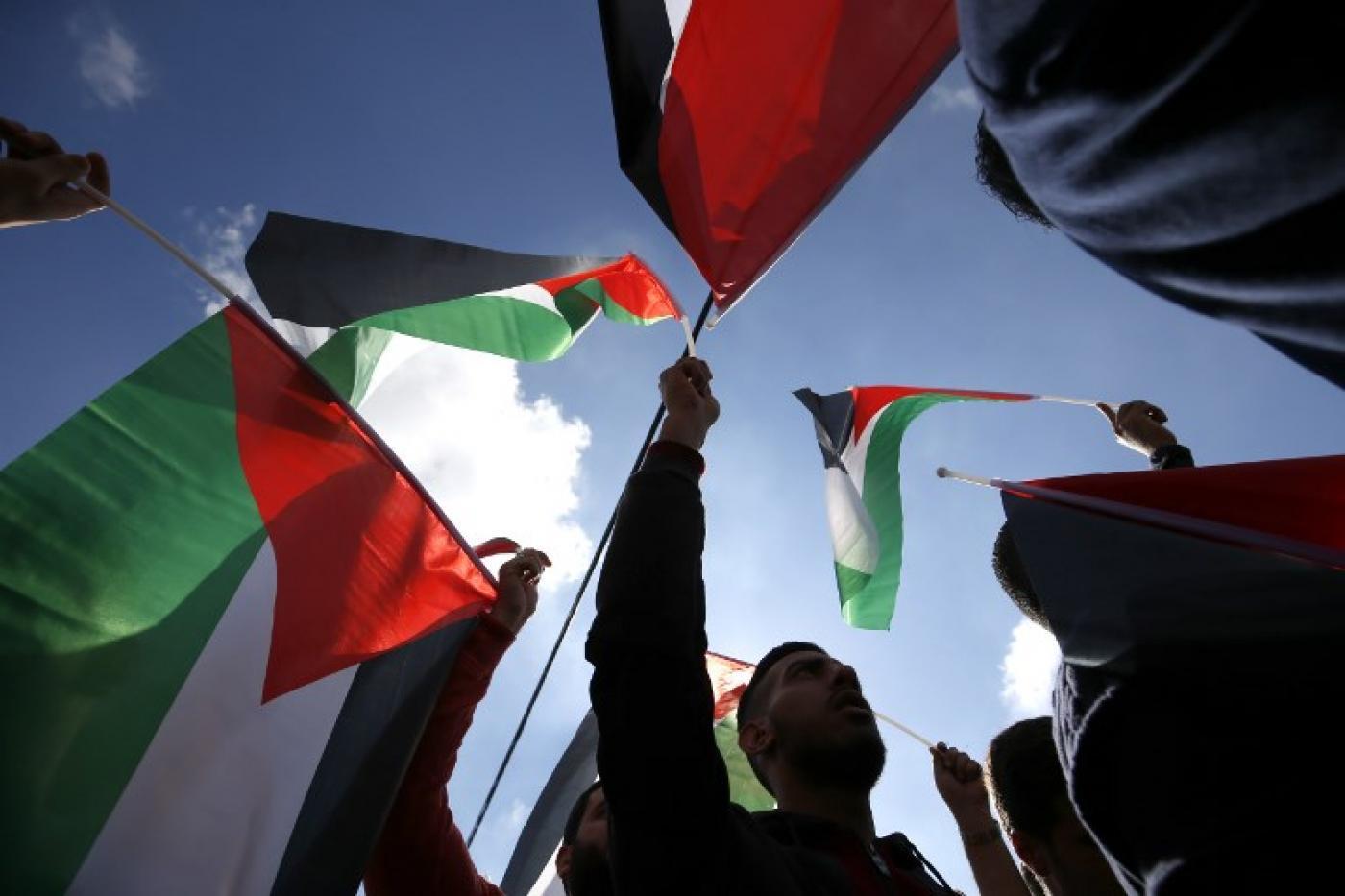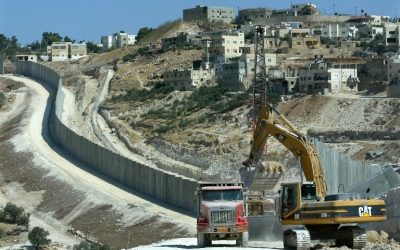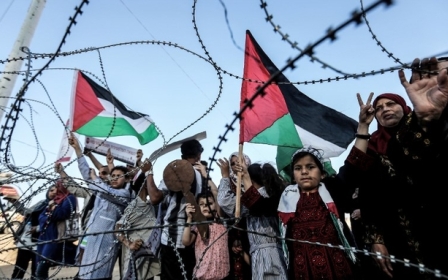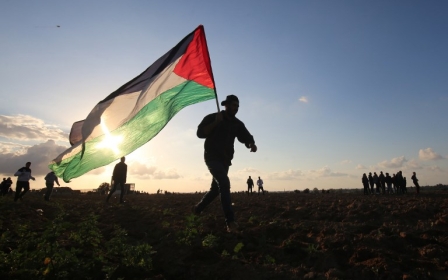Joe Biden and the devastating illusion of the 'peace process'
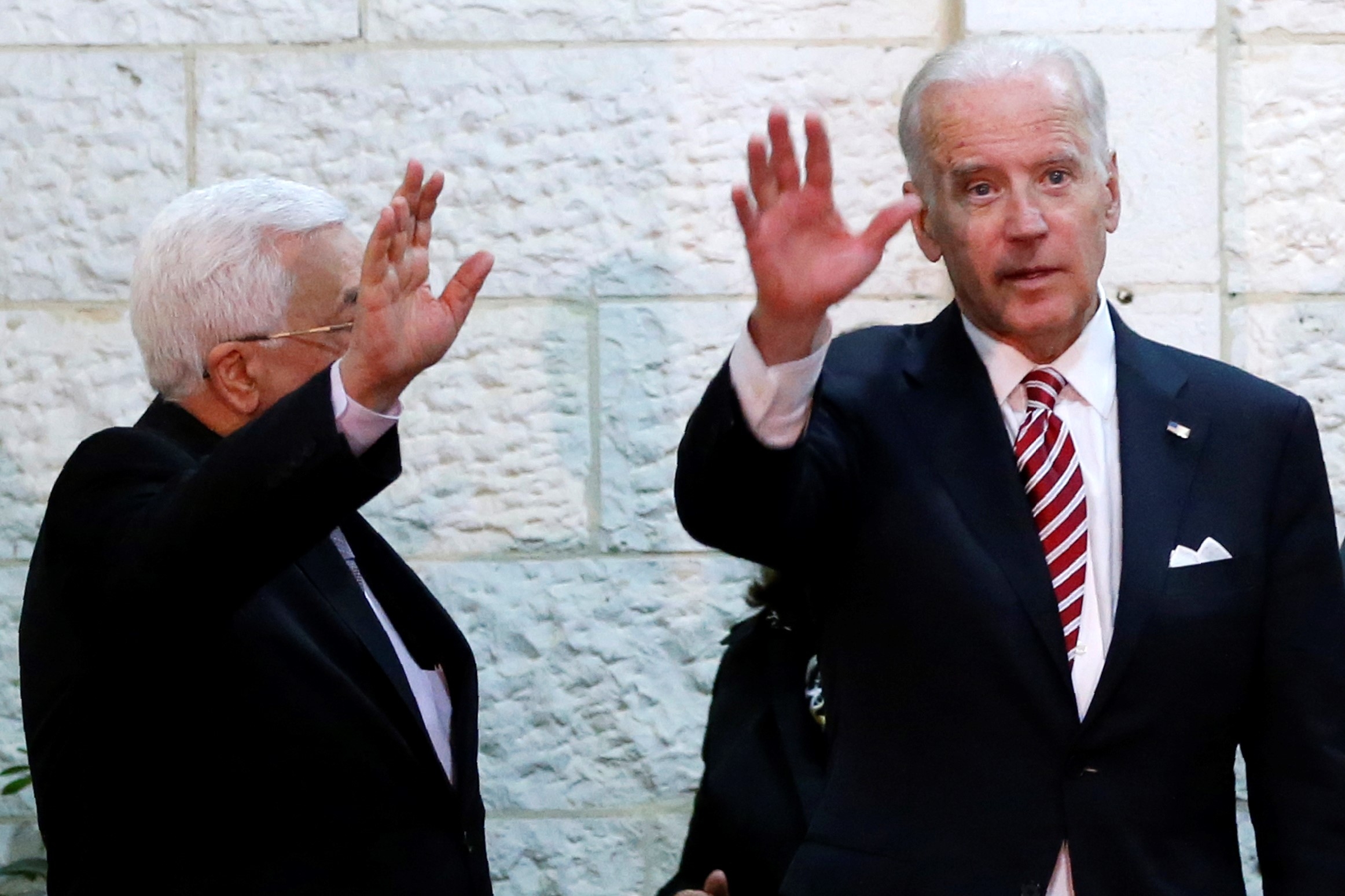
Americans and people around the world have been combatting two major threats. The first is a populist US president, Donald Trump, and everything he stands for. The other is the Covid-19 pandemic.
The first threat has been removed - though only on a symbolic level, it seems, as his legacy remains alive in the US and beyond. Covid-19, meanwhile, has paralysed the world, exacerbating the already fragile lives of millions of people, particularly in poor and war-torn countries.
Trump is a manmade threat, characterised by a racist, populist ideology. Coronavirus is a threat created in nature, but the striking failure to contain the disease is the responsibility of humans - namely, the global neoliberal system that has become crueller and more merciless since the crumbling of the Soviet Union.
Unjust global system
Both of these threats can only be understood as a natural consequence of an unjust global system led unilaterally by the American empire over the past three decades. False claims about the triumph of capitalism in the early 1990s have been followed by aggressive and devastating wars initiated by the victorious superpower and its proxies, aiming to enforce its religion of the market globally. The essence of this neoliberal religion prioritises profits over human life.
New MEE newsletter: Jerusalem Dispatch
Sign up to get the latest insights and analysis on Israel-Palestine, alongside Turkey Unpacked and other MEE newsletters
The existing capitalist, imperialist world order is the same one that created the Nakba, the ongoing tragedy of the Palestinian people
These evils have spawned an ever-greater awareness among populations around the globe of the source of their plight. We have seen a return to coordinated struggles, as emerging local and global grassroots organisations mobilise. Intersectional struggles based on class, colour, indigenity, ethnicity, gender and sexual orientation are gaining ground worldwide.
The defeat of Trump - the most vulgar and cynical manifestation of the unrestrained market economy and the racist, populist right - has been celebrated not only by millions of Americans, but by people all around the world. But progressive forces and civil society organisations are well aware that Joe Biden’s victory offers no real alternative, viewing this change as merely a small step towards more serious activism on the long path to a real shift in US policies.
Nonetheless, what is encouraging is the improvement in the standing of the American left, inside and outside the Democratic Party, and the role it has played in defeating Trump.
Shifting political landscape
Where does the Palestinian cause stand in this ever-changing political landscape? Can the new-old administration in Washington deliver any substantive support to Palestinians, or will it reproduce the traditional, devastating illusions about the “peace process”?
The existing capitalist, imperialist world order is the same one that created the Nakba, the ongoing tragedy of the Palestinian people, after Zionists forcefully displaced the indigenous population of Palestine and Judaised an Arab majority country.
It would be catastrophic for the Palestinian leadership, and particularly the Palestinian Authority (PA), to return to old illusions and expect real change from the Biden administration at the expense of Palestinian unity and a coherent strategy of popular resistance. It would be suicidal to continue believing that anything substantive can be achieved through negotiations alone, even if the dishonest American broker is replaced by international arbitration.
Regrettably, the moment the US vote moved in Biden’s favour, the PA leadership rushed to return to security coordination with Israel, relinquishing its own recent initiative to reunify the Palestinian body politic in the wake of the US-Israeli “deal of the century”. That says much about the failed thinking of this leadership and its incompetence in advancing the Palestinian struggle.
Alternative vision
This sort of leadership is a major problem for the Palestinian forces which have been striving to craft an alternative vision to mobilise the Palestinian people, restore their strength, and capture the world’s imagination. Many of us today believe that the best solution to the colonial struggle in Palestine is a single democratic state, where all people in historic Palestine, and the refugees expelled in 1948, can coexist.
For that to happen, the colonial apartheid regime and its structures of domination must be dismantled, and the injustices done to Palestinians must be redressed. How can this be realised, and what is the strategy to achieve it? This requires serious collective thinking.
The reality on the ground is bleak because Zionist colonisation and repression are in full gear under an extreme right-wing Israeli government. The Palestinian national movement is still divided, with weak leadership that has long since abandoned the anti-colonial struggle and the one-democratic-state solution, in favour of the racist and unjust two-state solution.
As for the Arab world, a number of despotic and corrupt regimes are upgrading their covert normalisation into a direct and overt alliance with the apartheid regime. This bolsters the strong support Israel already receives from western governments.
Successes and challenges
Yet, within this grim reality are several important bright spots. Most important is the steadfastness of Palestinians on their homeland; they are numerically equal to Israelis, and Israel has failed to remove the Palestinian cause from the international agenda. Important grassroots movements, such as BDS (boycott, divestment and sanctions), have scored remarkable victories.
BDS and other Palestinian popular movements have reinvigorated international solidarity movements, which were among the victims of the Oslo Accords. Within the American Jewish community, voices are rising to critique Israeli crimes. From these achievements, we can draw hope and momentum for our struggle for liberation and justice in one democratic state.
Progressives have a common enemy: the current order of exploitation, poverty, disease, wars, environmental devastation, colonisation and racism
At the same time, besides the existing power imbalance and the lack of political actors who embrace egalitarianism in all of Palestine, proponents of the one-state solution face four major challenges.
First, they must formulate a political programme that can be endorsed by a large number of activists and intellectuals, both Palestinian and Jewish.
Second, they must build a large, grassroots movement that can be an effective political player and reach out to all Palestinian constituencies.
Third, they must reconnect with the Arab progressive forces that have been striving for a comprehensive renaissance - an Arab world free from despotism, nepotism, injustice and colonialism.
And finally, they must restore the standing of the Palestinian national liberation movement in the global progressive movement. We have a common enemy: the current order of exploitation, poverty, disease, wars, environmental devastation, colonisation and racism.
The path forward
We in the One Democratic State Campaign, launched three years ago, have been grappling with these challenges while learning from the contributions and mistakes of previous one-state advocacy groups that emerged after Israel crushed the Second Intifada.
Although we are operating in tough conditions, we have managed to create the largest-ever organisation advocating the one-state paradigm as other established groups have integrated into our campaign. Still, there is much work to be done, and it is not easy to transition from a campaign to a larger, mass grassroots movement, which is the next phase of our project.
But this is the only way to move towards the endgame: a noble, just and ethical solution to a century of colonial aggression. We are determined to keep going on this path towards freedom for all.
The views expressed in this article belong to the author and do not necessarily reflect the editorial policy of Middle East Eye.
This article is available in French on Middle East Eye French edition.
Middle East Eye delivers independent and unrivalled coverage and analysis of the Middle East, North Africa and beyond. To learn more about republishing this content and the associated fees, please fill out this form. More about MEE can be found here.



